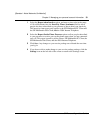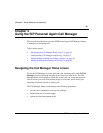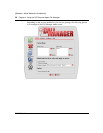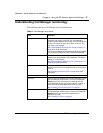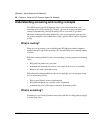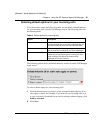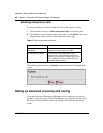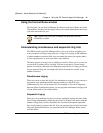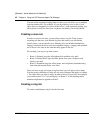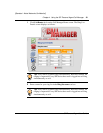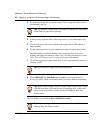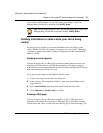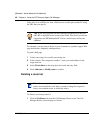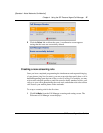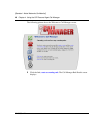
Chapter 4 Using the SIP Personal Agent Call Manager 41
SIP Personal Agent User Guide
[Standard - Nortel Networks Confidential]
Using the Current Rules window
The first time you use the Call Manager, the Inactive and Active Rules area in the
Current Rules windows will be empty, unless your system administrator has set up
your rules and routes for you.
Understanding simultaneous and sequential ring lists
The SIP Personal Agent Call Manager allows you to set up how and where you
want your phone to ring by using ring lists. A ring list is a group of SIP addresses
or phone numbers associated with your user name (the name you register under)
in your organization's or service provider's user database.
The basic purpose of a ring list is to enable your calls to follow you if you are not
at your desk or primary device location. You can set up rules to screen certain
people, or everyone, and route calls differently based on who is calling you. Based
on your personal ring lists, incoming calls can be forwarded, or routed, to any
number of devices.
Simultaneous ringing
When you create a route and ring list for simultaneous ringing, you can choose to
program all your telephones/mobile phones numbers to ring all at once
(simultaneously) for your incoming calls. For example, if you travel frequently
between offices in multiple locations, you can program simultaneous ringing to all
of your offices and to your mobile phone.
Sequential ringing
When you set up multiple ring lists to activate sequential ringing, the items in the
first list ring simultaneously when the call comes in. If there is no answer after the
number of rings that you have identified, the second and subsequent sequential
lists are tried until you answer the call. If no one answers after all rules have been
followed, the default behavior you specified on the Call Manager Home screen
will take effect.
Tip: Current rules allow you to manage and prioritize your call
availability to others.



